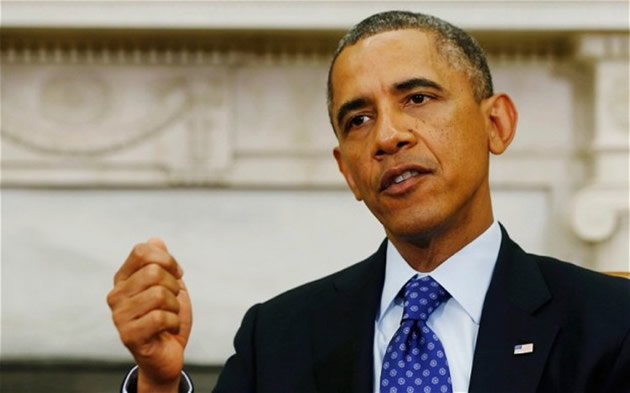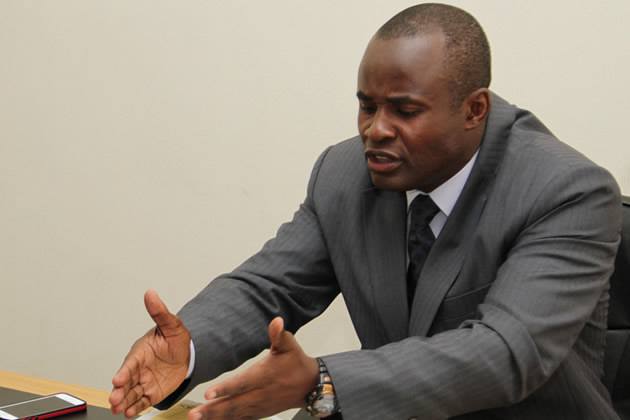US interference horror in Africa

Andre Vltchek Correspondent
“What could be the most striking image, one that would clearly illustrate the destructive involvement of the United States in Sudan?” I ask. “In short, what should I photograph, that could show the suffering of the Sudanese people?” “Let’s go and photograph what is left of the Al-Shifa factory,” I am told. “It is terrible, and truly symbolic.” It is actually close to impossible to photograph just about anything in Sudan. For right or wrong reasons, the government is paranoid. Elaborate permits have to be issued for traveling outside the main urban areas, and for taking photos and videos even inside the capital city of Khartoum itself. If one dares to at all, one has to work fast and clandestinely, even if one is not planning to do anything damaging to Sudan. And I was definitely not coming here as a foe. Why was I here? After making my films, after covering the horrid wars of the African Great Lakes, after witnessing the awful devastation of the Democratic Republic of Congo (DRC), I had to finally come to Sudan, which for me represented that remaining, that last piece of the “puzzle”; a part in the mosaic of the horrors which are now covering almost the entire continent of Africa.
I thought that I had to be here, in order to understand all the subtle nuances of how Western imperialist designs have been fragmenting and ruining this entire continent.
I convinced one of my friends in Khartoum to accompany me, and on my third day in Sudan, we drove towards the “legendary” sight of the former Al-Shifa pharmaceutical factory in Bahri, Khartoum North. The path we took led through relatively affluent neighborhoods, full of large houses, even villas, some of which, I was told, belong to Omar al-Bashir himself, and to his relatives. Our car passed near the bizarre complex of Al-Noor Mosque, which is built in a Turkish style.
“This may be the only mosque in the world, which has a supermarket behind its walls,” my guide explained, smiling sarcastically. “The investment and idea came from our President; from al-Bashir himself.”
A few minutes later we see what we came here for: the site, the rubble, the devastation. A surviving chimney of the factory is right in front of us. On the left-hand side of the road, it is just pure destruction. 18 years after the “event”, nothing grows here, and nothing, no structures have replaced what has been converted into debris.
I work fast. I don’t want to get caught. I came here in order to document the brutality of the Western global regime, but somehow here I feel like a thief, like an intruder. At this point I still don’t know why.
The Al-Shifa factory was hit and destroyed by US Tomahawk cruise missiles in 1998, just a few days after the terrorist attacks on the American embassies in both Kenya and Tanzania. President Bill Clinton ordered the attack, arguing that the compound was storing nerve gas, something that was strongly denied by both the Sudanese government and the owner of the plant.
On October 20th, 2005, The New York Times reported in its uncommonly critical article:
“American officials have acknowledged over the years that the evidence that prompted President Clinton to order the missile strike on the Shifa plant was not as solid as first portrayed. Indeed, officials later said that there was no proof that the plant had been manufacturing or storing nerve gas, as initially suspected by the Americans, or had been linked to Osama bin Laden, who was a resident of Khartoum in the 1980’s . . . no apology has been made and no restitution offered, which has Sudan’s government steaming, even seven years after the ground shook and the dark sky over Khartoum turned light as the plant was hit.
On the most recent anniversary of the bombing, Sudanese authorities did what they always do and repeated their call for a United Nations investigation of the American attack on the factory, which, if nothing else, was a major provider of medicines for humans and animals at the time it was destroyed.
Mustafa Osman Ismail, who was foreign minister until recently, also raised the issue at the United Nations summit meeting in New York last month, saying the bombing “damaged the development efforts of my country and deprived my people of basic medicines.”
“It is thoroughly paradoxical,” I am told, as we are driving away. “The Americans ruined Sudan’s most important medicine supply. They bombed a private factory that actually belonged to a person with extremely close business ties to the United States.”
But this is not the only paradox that I will encounter in this country. And it is not the only paradox in its relationship with the arch tormentor — the United States.
In Khartoum, I met dozens of people: Sudanese people, Eritrean people, Europeans as well as Asians.
I kept putting the same questions to everyone: is Sudan really at odds with the West, particularly with the United States? Or is ‘the game’ actually much more complex than that? — Counterpunch. If Sudan is really a brutal dictatorship, then Sudanese people are shockingly outspoken. Those who are opposing the government are speaking against it openly, even in front of a total stranger like myself. This would be unthinkable even in today’s Egypt or Turkey.
“But no names, please, no names,” I am told.
I understand. I take notes, but do not write down any names.
A man working for an international organization is laughing, as we are having dinner:
“In Sudan, people can meet and say whatever they want. Nobody cares. But god forbid if they begin to organize.”
He is talkative and friendly. But later I find out that he thinks (and tells his colleagues) that I am a ‘spy’, which, in turn, is explained to me, is quite the usual way of looking at each other here. It is enough to be half Eritrean or Ethiopian to be suspected of spying. All Westerners are flatly considered to be professional spies, no matter how strong their anti-imperialist credentials are.
This constant suspicion is what made me uncomfortable in Sudan, from the first moment I stepped off the plane. I never felt like this in Eritrea or in Zimbabwe. There, they knew who I was and what I do: they read my books and have watched my films, and consequently they trusted me.
Here, one paradox piles on top of another. There is this brutal embargo, and open confrontation between the West and Sudan. Already, many years ago, the ICC issued an arrest warrant against the President. It is almost impossible to get a Sudanese visa with a US passport. But, as I am told, half of the Sudanese parliamentarians are holding US citizenship and regularly ‘commute’ between Sudan and North America. Bizarre? Yes, thoroughly. Is it even possible? Apparently it is: welcome to Sudan!
In the meantime, over one of the tastiest steaks I have ever had in my life, my acquaintance spills his heart out to me (allegedly a foreign spy):
“We have some of the best meat in the world… The embargo means, no chemicals, everything is organic. Sudanese are herders… Beef, sheep… Such a rich land! We have plenty of water below the ground. Our people are nice, they are peaceful, welcoming… We want to be friends with everybody in this world.”
At the end, he helps to arrange a car for me, for the following day. He is not supposed to, as I am not allowed to drive anywhere in this country. Especially if he thinks that I’m a spy.
Things are slightly confusing. But I am quickly getting used to it.
***
Several African and foreign analysts now believe that the events in Sudan, the West’s desire to destabilize it, to overthrow its government and ultimately to break the country into pieces, are closely linked to the horrific past and present of the rest of Central Africa, particularly to Rwanda, Uganda and the DRC. Others dispute it.
The disagreements are often only over whether the main booty of the West was actually supposed to be the Democratic Republic of Congo or Sudan.
In his legendary work, first published in 2004, CENTRAL AFRICA: 15 YEARS AFTER THE END OF THE COLD WAR. THE INTERNATIONAL INVOLVEMENT, Dr. Helmut Strizek, a German academic, argues:
“Most people expected that Clinton with his “leftist” leanings would pressurize the Bashir-Turabi regime into a process of democratization in line with the Bush-Mitterrand approach that had been adopted after the end of the Cold War. But things took a different course. Clinton and Madeleine Albright, the new American Ambassador to the U.N., considered Sudan to be a “rogue state” and the number one enemy in Central Africa. They therefore opted for a proxy approach (“get others to fight your war”), a well known strategy that had been applied during the Cold War.
Mitterrand was unlikely to comply with the intended “regime change” in Khartoum. He was apparently not informed about Washington’s Sudan policy and could not understand the effects this new policy had on the Rwandan problem. After the Somalia disaster of 3 October 1993, Madeleine Albright used all the tricks in the book to minimize a U.S. contribution to the UNAMIR peacekeeping force envisaged in the Arusha Agreements. These activities were the first signs that the U.S. wished to reduce its commitment in favour of power sharing in Rwanda, help Museveni and his friend, Paul Kagame, to win the Rwandan war, and find other anti-Khartoum allies.”
The horrors in Rwanda occurred in 1994 and then the US-backed Tutsi RPF took power almost immediately there (or one could say almost simultaneously), the same year. One year later, Rwanda and Uganda began one of the most brutal and genocidal wars in the history of the 20th Century – the one against the people of the DRC. The war continues until now, and is fought on behalf of several Western powers and business interests. By the recent count, at least 10 million people have already lost their lives.
The West was interested in chipping off several resource-rich parts of Sudan, including the then so-called southern Sudan. Neighboring Uganda was extremely interested in the ‘project’, too. It was enjoying full impunity and was clearly emerging as a brutal regional power. It had already supplied, trained and hardened the RPF cadres, (before the RPF took power in neighboring Rwanda). It was already helping with plundering the DRC, and it felt suddenly ready to play and to think big. = Counterpunch







Comments